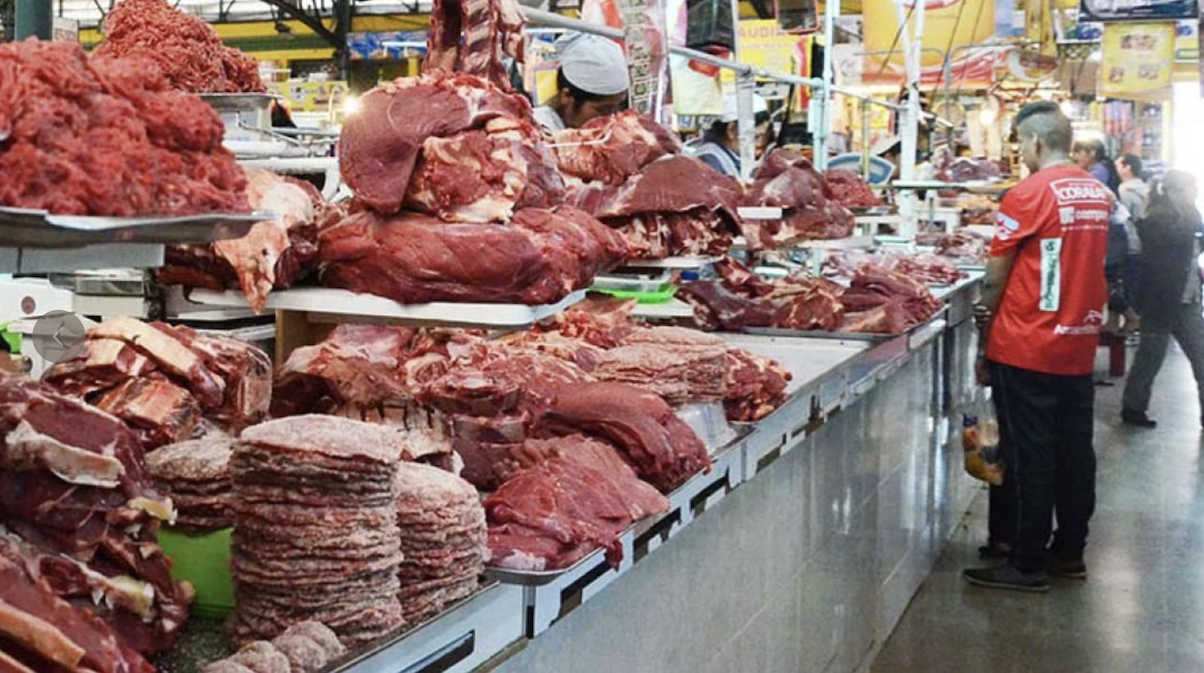
Bolivia Lifts Ban on Beef Exports

The Minister of Rural Development and Land of Bolivia stated that over 44,000 tons of beef exports have been approved this year, ensuring a surplus for domestic consumption.
After a meeting held by the Bolivian government, the livestock industry, and circulation departments, it was decided on Wednesday (the 4th) to lift the ban on beef exports in a "controlled and coordinated manner". The government's export ban on the product lasted for four months, which was implemented on February 5 this year to reduce domestic market prices and ensure supply.
On Wednesday, Yamil Flores, Minister of Rural Development and Land, announced that the current government has approved the export of over 44,000 tons of beef. He warned that strict controls would be imposed to guarantee domestic market supply first. "Through dialogue and consultation, we have proposed this agreement, which will help improve the supply of beef, a basic food, to the Bolivian people," the official announced at a press conference.
"Beef exports have resumed on the condition that beef producers and marketers commit to better supplying the domestic market so that prices will drop immediately," he said. He also explained that the sufficient supply of the domestic market is guaranteed, with an annual beef supply of 351,231 tons nationwide, while the annual demand is 295,293 tons. "Therefore, there is a surplus of 55,239 tons."
Flores guaranteed that the government is striving to provide structural solutions to the country's economic problems through economic diversification, industrialization, increased food production, and expanded exports.
Beef Production and Supply
"The country has a cattle inventory of 11.4 million, which will allow an annual production of over 351,000 tons of beef. With the livestock sector's commitment to increasing supply, prices will fall. We will always defend the people's wallets—beef is not a luxury and should be affordable for all Bolivians," he emphasized.
In this regard, Zenón Mamani, Minister of Production Development, explained that an increase in the supply of live cattle at auction centers and fairs has been agreed upon. In addition, multiple entities and production chains will participate in cross-control to ensure the supply of beef at fair prices in all markets. It was also announced that joint work would be implemented to control the smuggling of live cattle at borders and fairs. He guaranteed that beef exports could "generate revenues of over $100 million".
He stressed that exports are being opened but in a "coordinated and controlled" manner, with priority given to domestic market supply. "It was also agreed to conduct an evaluation every two weeks and regularly review the agreements reached."
Exports
Walter Ruiz, President of the Bolivian Livestock Federation (Congabol), welcomed the government's decision and said, "Today, the hope of building the country and earning foreign exchange is reborn." He pointed out that Bolivia is certified as a non-immunized foot-and-mouth disease-free country, which opens the country's beef to the world. He guaranteed that the sector is committed to supplying the market. "The commitment is to provide different distribution channels so that the public can access beef," he said.
Rubén Soria, leader of the Bolivian Beef Workers' Federation (Contracabol), stated that the sector would cooperate with livestock breeders and the government to supply beef at fair prices.
Source of this article: Lingxian Cloud Frozen Products
玻利维亚农村发展与土地部长表示,今年批准出口超过44,000吨,并保证有盈余供国内消费。
在玻利维亚政府、畜牧业和流通部门举行会议后,本周三(4日)决定以“受控和协调的方式”解除对牛肉出口的禁令。
政府对该产品出口实施的禁令持续了四个月。该措施于今年2月5日实施,目的是降低国内市场价格并保证其供应。
本周三,农村发展与土地部长亚米尔·弗洛雷斯(Yamil Flores)宣布,本届政府批准出口超过44,000吨牛肉。他警告说,将进行严格控制,以首先保证国内市场的供应。
“通过对话和协商,我们提出了这项协议,它将有助于改善向玻利维亚人民供应牛肉这一基本食品,”该官员在新闻发布会上宣布。
“牛肉出口得以恢复,条件是牛肉生产商和营销商承诺更好地供应国内市场,以便价格立即下降,”他说。
他还解释说,国内市场的充足供应得到了保证,全国每年牛肉供应量为351,231吨,而年需求量为295,293吨。“因此,有55,239吨的盈余。”
弗洛雷斯保证,政府正在努力通过经济多样化、工业化、增加粮食生产和扩大出口,为该国的经济问题提供结构性解决方案。
牛肉生产和供应“该国拥有1,140万头牛的存栏量,这将允许每年生产超过351,000吨牛肉,并且随着畜牧业部门承诺增加供应,价格将会下降。我们将始终捍卫人民的钱袋子,牛肉不是奢侈品,应该让所有玻利维亚人都能买得起,”他强调说。
对此,生产发展部长泽农·马马尼(Zenón Mamani)解释说,已商定增加拍卖中心和集市的活牛供应量。此外,多个实体和生产链将参与交叉控制,以保证所有市场以公平价格供应牛肉。
还宣布将实施联合工作,以控制边境和集市的活牛走私。他保证牛肉出口可以“产生超过1亿美元的收入”。
他强调说,出口正在开放,但要以“协调和受控”的方式进行,优先供应国内市场。“还商定了每两周进行一次评估,并定期审查所达成的协议。”
出口玻利维亚畜牧业者联合会(Congabol)主席沃尔特·鲁伊斯(Walter Ruiz)对政府的决定表示欢迎,并说“今天,建设国家和赚取外汇的希望重生了”。他指出,玻利维亚被认证为非免疫无口蹄疫国家,这使得该国的牛肉向世界开放。他保证该部门致力于供应市场。“承诺是提供不同的分销渠道,以便民众能够获得牛肉,”他说。
玻利维亚牛肉工人联合会(Contracabol)领导人鲁本·索里亚(Rubén Soria)表示,该部门将与畜牧业者和政府合作,以公平的价格供应牛肉。
本文来源:领鲜云冻品
更多精彩内容,请关注冻品e港H5端或公众号












